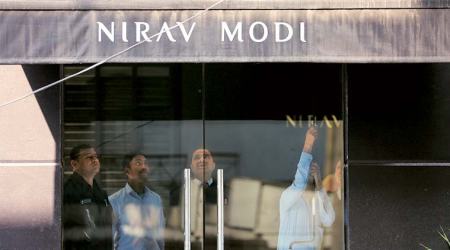 The JNU teachers’ and students’ associations — JNUTA and JNUSU, respectively — came out strongly against the move.
The JNU teachers’ and students’ associations — JNUTA and JNUSU, respectively — came out strongly against the move.
Since he assumed office in early 2016, JNU Vice-Chancellor Mamidala Jagadesh Kumar has been at loggerheads with the University community. He has penalised students without any proper enquiries, fined scores of other students for raising slogans or protesting, for eating biryani or burning the Manusmriti, holding cultural programmes on May Day and so on.
He has shut down dhabas and barred students from protesting in the Administration block, our Freedom Square. He has tried to shut down research by undertaking a massive seat cut, sabotaged the reservation policy and scrapped “deprivation points” for students coming from disadvantaged backgrounds in the entrance test. He closed down the progressive institution of Gender Sensitisation Committee Against Sexual Harassment (GSCASH).
In a nutshell, in his two-year long career, the V-C has sought to change the progressive and democratic character of JNU. His latest move to introduce compulsory attendance for every student from BA to PhD is perhaps the most dangerous. For an outside observer this imposition of attendance might appear just as another good policy of the JNU V-C to fix maladjustments in the university, like the dropout rates of students, but the contestation between the V-C and the students is the antagonistic worldview of democratic academic freedom.
The students of JNU believe in democratic and free academic research, very different from the V-C’s notion of a disciplined and regimented, coercive academic exercise. The larger question is what should we as a society envision education to be like? Do we want our universities and educational institutions to be ruled by undemocratic heads with complete disrespect for academic autonomy?
For close to five decades now, JNU has never had compulsory attendance, for either BA/MA or M.Phil/PhD. In all these years, however, the University has delivered outstanding performances. Even after the Modi government came to power, JNU has ranked at the very top, in every report brought out by the ministry of human resource development.
Read | JNU makes attendance must for all classes, students upset
The JNU administration is also trying to link compulsory attendance with fellowships and hostel facilities now. Let me explain how this move has the power to destroy the very democratic and inclusive nature of JNU that has been painstakingly built over decades.
Three features of JNU make it a unique institution. First, is the criticality that it cultivates in the minds of students and research scholars alike. Second, is its inclusive nature where students from extremely deprived backgrounds can come and study, because of the price factor as well as the progressive admission policy. Last, but not the least, is its politically vibrant culture that makes students sensitive to larger social oppression, inequality and exploitation and inspires them to fight the same. Bureaucrats, professors, journalists, government officials, social activists even police officers who have been JNU alumni, reflect in their work these traits of criticality and social awareness that they inculcate from campus culture.
Compulsory attendance seeks to break that. JNU students do go to classes regularly, as any teacher would testify. But they also go to different classes and attend lectures which are not part of their courses. We, the students of JNU, attend seminars of different disciplines, sit in the library and study, take part in various protest programmes and public meetings and sit in dhabas and debate and discuss. The pedagogy bestowed in JNU is therefore not limited to designated classroom lectures but is built upon holistically from all these myriad programs, each of which make us knowledgeable about social structures and relations.
Some teachers have overflowing classes. To name a few – professors Rajiv Bhargava, Neeladri Bhattacharya, Avijit Pathak, Tanika Sarkar, Gurpreet Mahajan, Gopal Guru, Prabhat Patnaik, Prof. Namwar Singh – although the actual list will easily be ten times longer than this. Several of us attend classes in centres not our own. This comes out of curiosity to learn. This process of open learning will seriously get a jolt if students are pigeonholed to their own courses alone and forced to attend classes to maintain attendance.
Many students who come from deprived backgrounds are often forced to do part time jobs in JNU to sustain themselves, and in some cases even their families. Since attendance was never an issue, students could adjust routines to squeeze in extra hours of work, while simultaneously studying. Teachers, classmates, seniors all come forward to help students who have missed classes and the camaraderie of collective learning makes JNU a beautiful place to live in. Compulsory attendance will make students coming from the more deprived backgrounds its worst target.
The administration which has issued the bizarre diktat of compulsory attendance for even M.Phil, PhD students are clearly not aware of how research takes place. The minimal leeway that is given for fieldwork in this current scheme is ridiculously low. Students spend a lot of time in the field and archives, libraries, present papers and attend seminars and workshop all across the country and abroad. Such exercises are encouraged by faculty as it ultimately enriches research. In departments like Sociology and Education research scholars are encouraged to go and spend time in tribal and rural hinterlands and teach children, beyond their designated fieldwork. Students in Arts and Aesthetics are constantly encouraged to participate and observe theatre workshops as well as cultural gatherings and folk festivals. Compulsory attendance for researchers, with minimal allowance for fieldwork will make research mundane and much less vibrant. Perhaps that is what Mamidala Jagadesh Kumar wants.
Lastly, needless to add, compulsory attendance is a weapon in the hands of the administration to curb political activism. But the fact remains that it is vibrant political activism that has prevented the privatization of JNU, kept education affordable and inclusive and has ensured social and gender justice. It is political activism that encouraged free and fair debate and critical discussion on various issues of national and international significance.
Political activism and critical pedagogy produce responsible and sincere citizens who are endowed with the spirit to fight against oppression. That is what JNU is known for. That is what the rest of the university community is fighting tooth and nail to save.
For all the latest Opinion News, download Indian Express App
- Feb 16, 2018 at 8:45 pmThus far JNU was den of time pass type students. Good hostel and food accommodation.Freedom to abuse national security , patriots and enacting strange dramas like cooking at main entrance, hooting, etc. Time to deal with these people with iron hands.Reply
- Feb 16, 2018 at 8:23 pmWhat a group of en led pricks is what I can say after reading this article !!!! Quoting the author JNU students "take part in various protest programmes and public meetings and sit in dhabas and debate and discuss." Haha - Is that part of their "education". I am appalled!Reply
- Feb 16, 2018 at 7:50 pmIt is neither a parliament not an old age home that everyone start political agenda and complain each other. They totally forget the motive of a university.Reply
- Feb 16, 2018 at 7:26 pmAttendance is compulsory in all American universities. JNU's research impact is zilch. It's focus is not on academics but activism. VC is doing the right thing. He needs to be applauded.Reply
- Feb 16, 2018 at 7:09 pmJNU is asylam for traitors....anti nationals..Reply
- Load More Comments



































